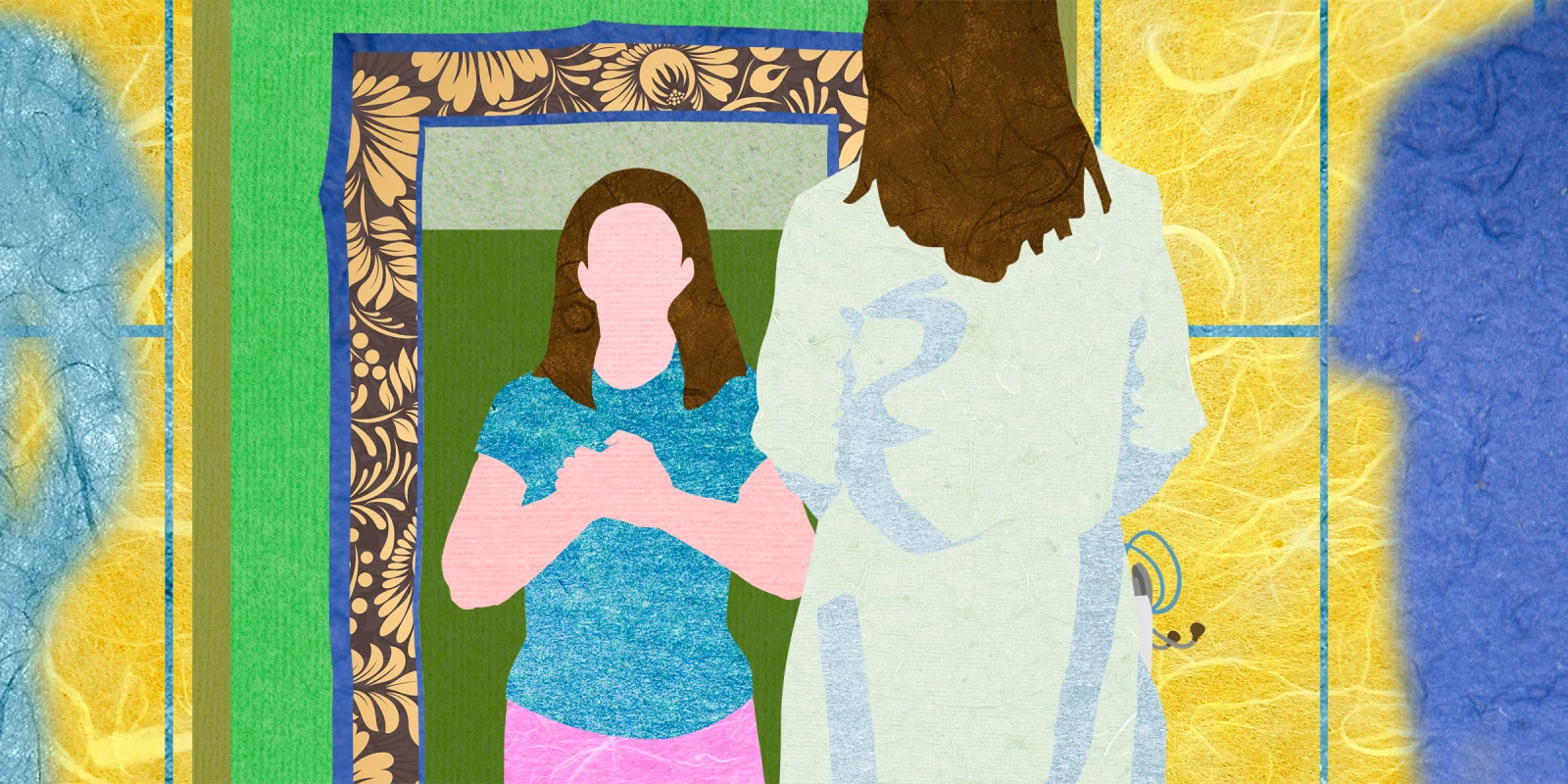Its 9 p.m. on a Sunday, and here I am: in my tacky pajamas with messy hair, standing in line at the checkout counter of my local grocery store. In my basket are ingredients for meals that I was supposed to already have prepped by now. On my mind are the unfinished tasks that I had promised myself I’d catch up on over the weekend. As the pre-Monday blues set in, I suddenly realize that I have been sighing quite audibly. I hastily glance around to see if anyone heard my obnoxious sighs when I see that familiar face.
I started at my current practice during the pandemic, which has rendered me terrible at recognizing unmasked faces. But this one stands out in my mind because I have been worried about her. The teenager at the end of the checkout counter is my patient with uncontrolled adrenal insufficiency. She did not show up for her last three appointments with me, and her pharmacist informed me that none of her recent prescriptions have been picked up. Yet here she is: bagging groceries without a care in the world. I want to ask her how she has been and what’s been keeping her from her clinic visits. Does she know we have been trying to reach her family? But I am in my tacky pajamas. It’s a Sunday. I do not have her chart in front of me. I certainly do not want her colleagues to hear about her health issues. I swipe my card and get to the end of the counter. She hands me my bag without looking up. "Have a good night," she says. For a few seconds our eyes meet, and I smile. "You as well, Lina." As I walk away, I look back over my shoulder to see realization dawn in her eyes. She grins sheepishly. I spend the next couple hours pondering over what I should have done differently.
This isn’t the first time this has occurred. I had moved to Los Angeles with dreams of serendipitously bumping into neighborhood celebrities. “Act cool when that happens,” I had been forewarned. So far, I have run into my adorable 5-year-old patient while jogging in a park, discovered that I diagnosed my manicurist’s son with growth hormone deficiency, and chanced upon a patient’s dad as he delivered my PostMates. (“You had talked to her about healthy eating habits,” he reminded me, as I stood there with literal egg on my face). How does one “act cool” in such situations? And what do I do the next time I see them in clinic? Do I thank Edy’s mom for the compliments I got for my fancy nail art, or do I jump right into reviewing his growth chart?
Most of the times when we spot each other in the wild, the family member or the patient comes over to say hi, and it makes my day. It is always nice to be recognized. A huge benefit of being a pediatrician is that most of my patients are pretty darn delightful, which makes it a joy to see them living their best lives outside of the sterile health care world. But it also throws me off a little.
When I have a stethoscope around my neck, I am confident in the role that I take on, and the advice that I dispense. I remember their upcoming events, career plans, frenemy dramas, and pet peeves, and am getting quite skilled at interweaving fun chitchat with serious medical discussions. But often, beyond the confidential walls of the hospital, I struggle to identify fair game when it comes to casual repartee. Without the comfort of carefully curated clinical conversations, I am just another introverted being trying to keep it together, while internally scrambling to recall their details, and fixating on how sloppy I must seem to them. I know that my patients’ families do not give two hoots about what I wear to the grocery store. They know I am only human and can sometimes forget names. (Odds are that they probably don’t remember mine, either!) They likely are not inclined toward meaningful conversations that extend beyond the weather, traffic, or the big game last night. So, why do I feel this pressure to live up to unrealistic (self-concocted?) expectations of how a physician should act, even when I am off the clock?
Egocentric musings aside, these random encounters serve as gentle reminders that our patients are individuals with a personality, and a full life. They are not just case numbers, and RVUs, as much as some administrators would like to believe. While I do not condone planned meetups in grocery stores, telehealth definitely opens up opportunities for us to know our patients better. Seeing them deal with medical challenges while navigating social circumstances gives us fresh insight into disease management. I couldn’t figure out why my patient was always hypoglycemic in the late afternoon, until I saw her in her sweat-soaked soccer gear during a 4 p.m. video visit recently. Outside the health care setting lie fresh perspectives and dimensions to caring for our patients. These brief unexpected glimpses into each other’s lives, whether virtual or in person, can strengthen the doctor-patient relationship. At the very least, they provide for amusing anecdotes. But I will never not be awkward about them.
In awkward moments outside of the office, what is your go-to topic for small talk? Share how you navigate these conversations in the comments.
Dr. Priyanka Bakhtiani is a pediatric endocrinologist at the Children’s Hospital Los Angeles, CA, specializing in the endocrine care of children after cancer therapy. She manages social media and networking for the Southern California Organization of Pediatric Endocrinology and the Pediatric Endocrine Society. She is passionate about medical education and currently pursuing a Masters in Academic Medicine. She loves to go hiking with her husband and foster dogs. Dr. Bakhtiani is a 2022–2023 Doximity Op-Med Fellow.
All names and identifying information have been modified to protect patient privacy.
Illustration by Jennifer Bogartz






